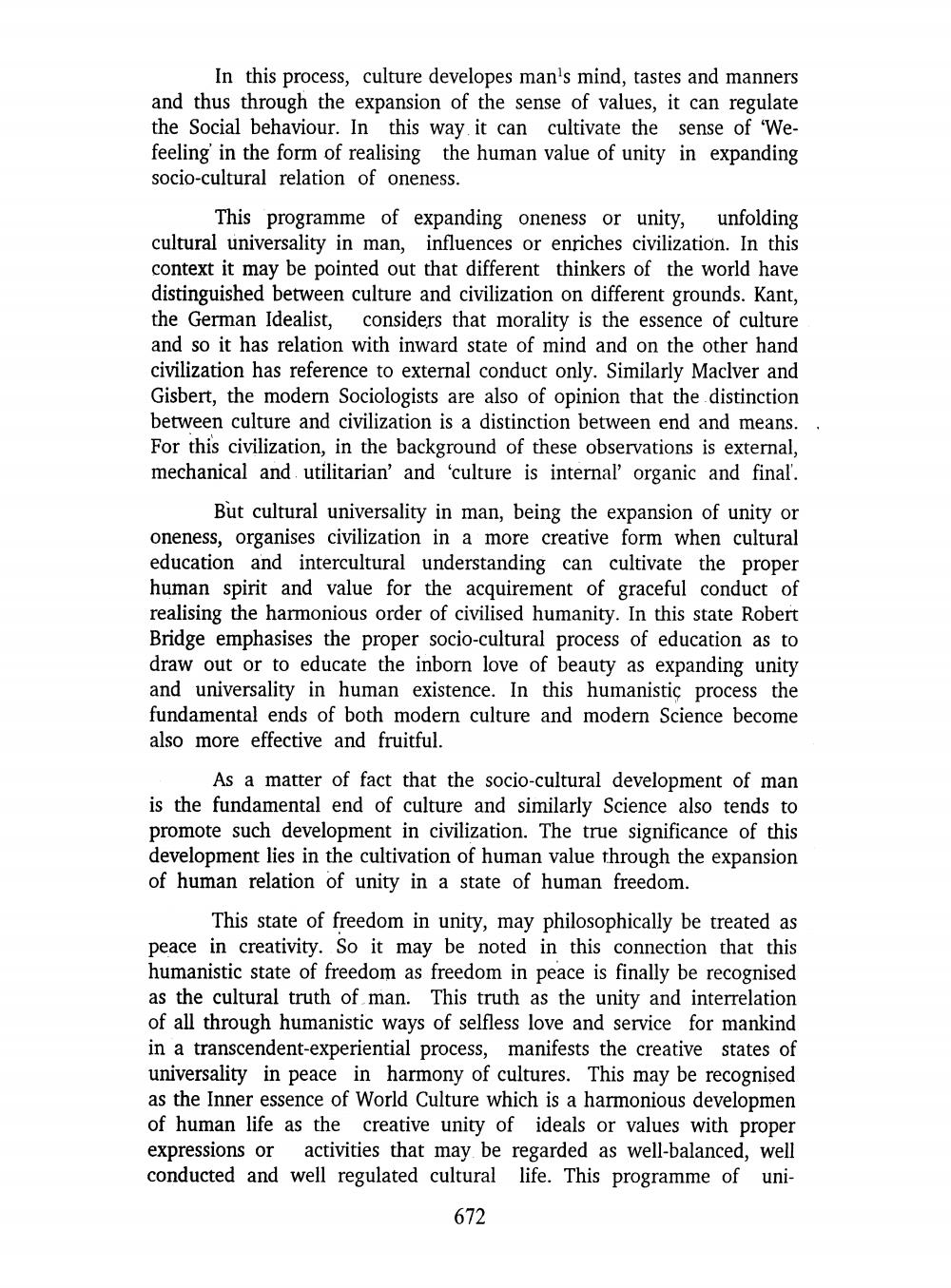________________
In this process, culture developes man's mind, tastes and manners and thus through the expansion of the sense of values, it can regulate the Social behaviour. In this way it can cultivate the sense of 'Wefeeling in the form of realising the human value of unity in expanding socio-cultural relation of oneness.
This programme of expanding oneness or unity, unfolding cultural universality in man, influences or enriches civilization. In this context it may be pointed out that different thinkers of the world have distinguished between culture and civilization on different grounds. Kant, the German Idealist, considers that morality is the essence of culture and so it has relation with inward state of mind and on the other hand civilization has reference to external conduct only. Similarly Maclver and Gisbert, the modern Sociologists are also of opinion that the distinction between culture and civilization is a distinction between end and means. , For this civilization, in the background of these observations is external, mechanical and utilitarian' and culture is internal organic and final'.
But cultural universality in man, being the expansion of unity or oneness, organises civilization in a more creative form when cultural education and intercultural understanding can cultivate the proper human spirit and value for the acquirement of graceful conduct of realising the harmonious order of civilised humanity. In this state Robert Bridge emphasises the proper socio-cultural process of education as to draw out or to educate the inborn love of beauty as expanding unity and universality in human existence. In this humanistic process the fundamental ends of both modern culture and modern Science become also more effective and fruitful.
As a matter of fact that the socio-cultural development of man is the fundamental end of culture and similarly Science also tends to promote such development in civilization. The true significance of this development lies in the cultivation of human value through the expansion of human relation of unity in a state of human freedom.
This state of freedom in unity, may philosophically be treated as peace in creativity. So it may be noted in this connection that this humanistic state of freedom as freedom in peace is finally be recognised as the cultural truth of man. This truth as the unity and interrelation of all through humanistic ways of selfless love and service for mankind in a transcendent-experiential process, manifests the creative states of universality in peace in harmony of cultures. This may be recognised as the Inner essence of World Culture which is a harmonious developmen of human life as the creative unity of ideals or values with proper expressions or activities that may be regarded as well-balanced, well conducted and well regulated cultural life. This programme of uni
672




